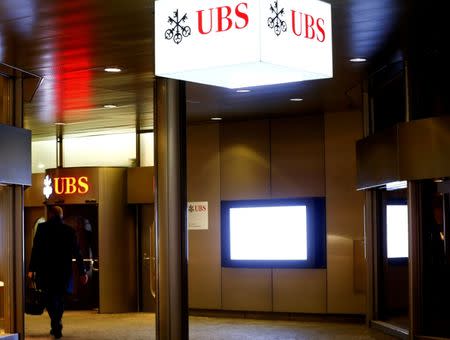UBS to change how advisers get paid ahead of fiduciary rule deadline

By Elizabeth Dilts NEW YORK (Reuters) - UBS Group AG is changing the way it pays U.S. financial advisers on retirement accounts before a U.S. Labour Department rule goes into effect next week, and halting the sale of a small number of noncompliant products, a senior UBS wealth executive said in an interview. Advisers in the Swiss bank's Americas wealth management business now will be paid based solely on the amount of assets and not the volume of transactions or the products they recommend for retirement accounts, said Tom Naratil, who runs the operation. UBS was in the process of informing its nearly 7,000 advisers in the Americas on Thursday. "If nothing changed year over year (the adviser would) be paid exactly the same in terms of dollars and cents," Naratil said. "Whatever decision he and the client make, it doesn't impact his rate of pay." UBS also will stop selling a "small list" of products that do not comply with the so-called fiduciary rule, such as exchange-traded notes it issues itself. Even with the changes, UBS is allowing customers to maintain most options they previously had. For instance, customers can still opt for accounts that require them to pay commissions on each transaction, rather than a flat fee based on assets. UBS will still receive the commissions, but because they no longer factor into pay, advisers will not have an incentive to repeatedly trade in retirement accounts for the sake of higher bonuses. In taking this approach, UBS will have to insert new language into contracts before the fiduciary rule goes into full effect in January. The rule is intended to force advisers to put customers' best interests ahead of profits. By signing documents that include a "best interest contract exemption," customers are acknowledging that the products and accounts they choose may not be favoured by the Labor Department. UBS is the last of the big four U.S. brokerages to detail plans for compliance with the controversial rule, whose fate has been in question. Earlier this year, President Donald Trump ordered the Labor Department to review the rule, which could affect the final outcome. As it stands, implementation begins on June 9. UBS chose its approach to keep client disruption to a minimum and to make sure the it can adapt if the rule is delayed, changed or repealed, Naratil said. UBS has chosen a path similar to Morgan Stanley and Wells Fargo & Co , which are also keeping commission-based retirement accounts. Bank of America Corp is taking the most conservative approach by moving nearly all retirement accounts to a fee-based model. (Reporting by Elizabeth Dilts in New York; Writing by Lauren Tara LaCapra; Editing by Cynthia Osterman and Jonathan Oatis)

 Yahoo Finance
Yahoo Finance 